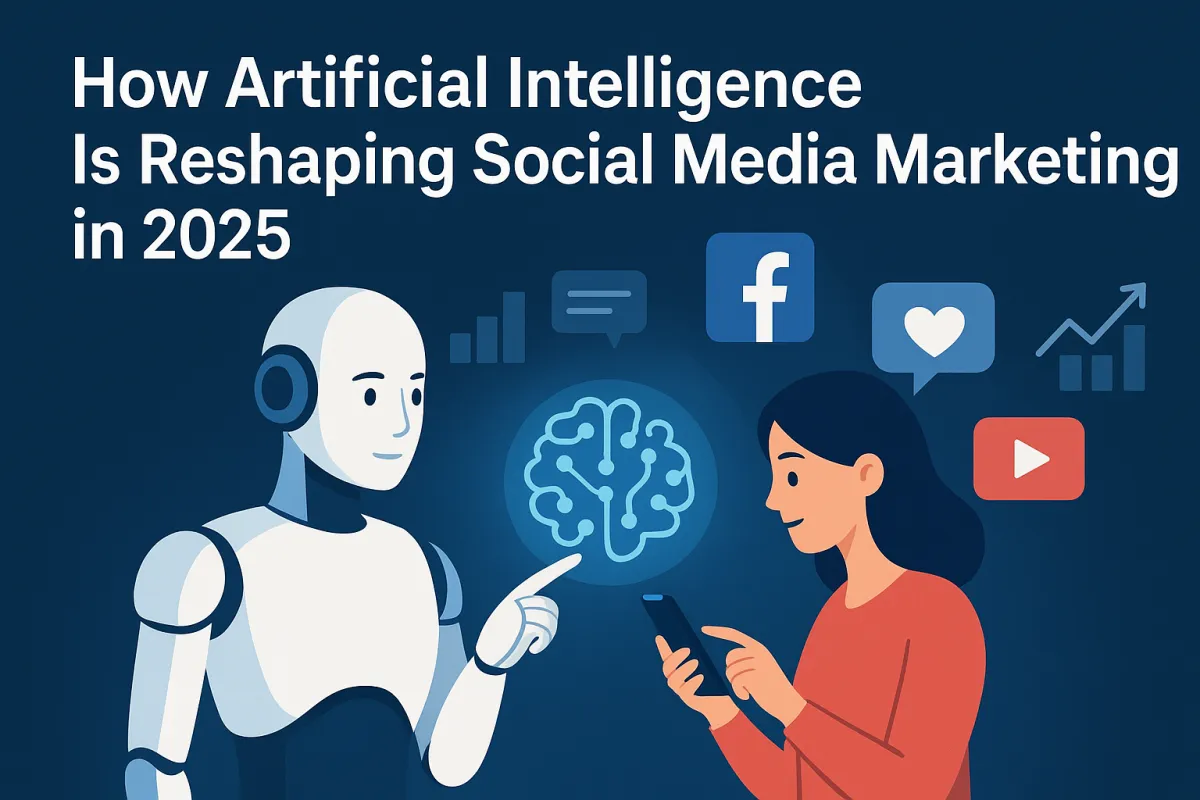
How Artificial Intelligence Is Reshaping Social Media Marketing in 2025
Introduction
Social media has always been a fast-moving landscape, but 2025 marks a turning point. With artificial intelligence (AI) at the forefront, platforms and brands are no longer relying solely on human creativity and manual analysis. Instead, AI is powering everything from content creation to audience targeting, making social media marketing more efficient, personalized, and impactful than ever before.
Smarter Content Creation
In 2025, AI tools have become integral to content production. Marketers now use AI to:
Generate high-quality copy and visuals for posts, ads, and stories.
Edit videos automatically, optimizing formats for different platforms.
Suggest trending topics and hashtags based on real-time data.
This doesn’t mean human creativity is obsolete. Instead, AI acts as a partner, allowing marketers to focus on storytelling while the technology handles repetitive and data-driven tasks.
Hyper-Personalized Experiences
Consumers are no longer satisfied with one-size-fits-all marketing. AI allows brands to deliver hyper-personalized experiences by:
Analyzing browsing, engagement, and purchase behavior.
Delivering tailored content and product recommendations.
Customizing ad formats for different audience segments.
Platforms like Instagram and TikTok are using AI to refine feed algorithms, ensuring users see content they are most likely to engage with, increasing both satisfaction and time spent online.
Predictive Analytics and Campaign Optimization
AI in 2025 is not just reactive but predictive. Marketers are leveraging AI to:
Forecast engagement rates and campaign outcomes before launch.
Identify the best times to post for maximum reach.
Optimize ad spend automatically across platforms.
By removing guesswork, predictive analytics help businesses reduce costs while improving return on investment (ROI).
AI-Driven Influencer Marketing
Influencer marketing continues to grow, but finding the right partner is often challenging. AI now helps brands:
Evaluate influencer authenticity by detecting fake followers or engagement.
Match influencers with brands based on audience overlap and values.
Predict campaign performance using historical data.
This ensures more transparent and effective collaborations.
Conversational AI and Customer Engagement
Chatbots and voice-enabled assistants have become mainstream in 2025. They now:
Provide real-time customer service directly on social platforms.
Handle FAQs, order tracking, and basic troubleshooting.
Deliver a seamless, 24/7 customer experience without requiring human staff at all times.
This integration improves customer satisfaction while saving time and resources for businesses.
Ethical Considerations and Challenges
While AI offers enormous benefits, it also introduces challenges:
Data privacy concerns remain as AI relies heavily on personal information.
Algorithmic bias can lead to unequal visibility or representation.
Over-automation risks losing the human touch in brand communication.
Marketers must prioritize transparency, compliance, and responsible AI use to build trust with their audiences.
Conclusion
Artificial intelligence is no longer just a supporting tool—it has become the driving force behind social media marketing in 2025. From content creation to predictive analytics, influencer selection, and customer engagement, AI empowers marketers to deliver smarter, faster, and more personalized campaigns. Businesses that embrace AI responsibly will not only stay ahead of the competition but also forge deeper, more meaningful relationships with their audiences.